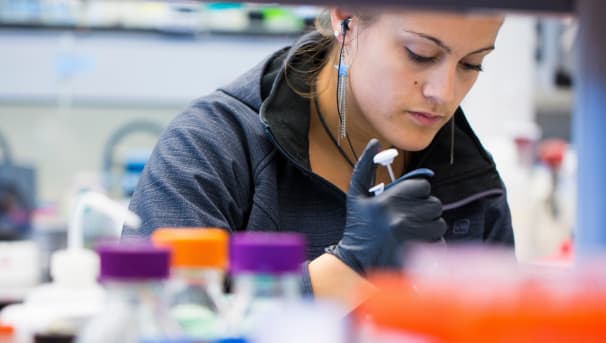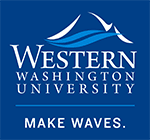Learn more about CSE and the departments within!
Mission
Our mission is to serve the science and engineering needs of Washington State and the global community by advancing scholarship and educating thoughtful leaders and problem solvers. We know that some Western students have found this time and circumstance to be very challenging. As a community it is important that we collectively recognize our ability to help, and to keep our focus and priorities on equitable access to education, inclusion, and providing opportunity.
Impact
We need to ensure that circumstances beyond their control do not keep our talented and driven students from achieving their goals. We also know that these times have not affected all students equally. If your situation and resources allow, I invite you to support us this year. Gifts to the Dean’s fund enable us to respond to emergent student and faculty needs.
Your gift will help provide the best possible learning experience for our students by supporting student research, scholarships, faculty and program support, technical equipment and innovative technology.
WWU has a national reputation for high quality, hands-on research and learning opportunities for its students. CSE is a shining star amongst its fellow colleges, boasting seven departments and two multidisciplinary programs. Our faculty participate directly in the classroom and laboratory instruction of our students in programs that emphasize independent student scholarship and the development of creative and innovative thinking.
Graduates from our departments and programs are prepared for a wide variety of professional opportunities in each of the disciplinary areas and are ideally prepared for pre-professional programs that require scientific and technical backgrounds.
Departments and Special Projects:
General College Funding Priorities
Advanced Technology Building - www.vikingfunder.com/wwunewbuildingfund
- Western’s new advanced technology engineering and computer science building is a direct response to the needs of Washington state industries and employers. The building will be a place for collaboration and connection with spaces that foster innovation, investigation, and inspiration. Physically and culturally accessible, it will be a hub where industry experts, faculty, and students come together to co-create the technology and engineering solutions for today and tomorrow. Visit the link above for more information!
Supporting Black Students in STEM https://www.vikingfunder.com/blackstudentsinstem
- The faculty in the College of Science and Engineering has established a fund to provide support for Black students in science, technology, engineering, and mathematics (STEM). Black people face unique and systemic barriers to succeeding in STEM, contributing to historical and ongoing underrepresentation in undergraduate and graduate STEM programs, and in STEM careers. The impetus for the fund is the 2020 protests in support of the Black Lives Matter movement. Through this scholarship we can, together, make an impact on the educational goals of Black students at WWU for generations to come.
Chemistry
Student success story from your department (scholarship recipient, study abroad experience or interesting undergraduate research opportunity).
- Melody Gao (Goldwater), Natasha Hessami (Fulbright, please see attached flyer with information about their scholarship/fellowship)
Specific funding priorities for this year:
- Supporting Black students in STEM https://www.vikingfunder.com/blackstudentsinstem
- Any events or changes in the department that your alumni should know about!
- New equipment purchases based on NSF/Murdock Charitable Trust grants. Please see the narrative below:
“In 2019, a team of investigators from across WWU was awarded two grants for acquiring state-of-the-art mass spectrometry instrumentation. This group was led by the Chemistry Department, with John Antos serving as the principle investigator, and Sergey Smirnov (WWU Chemistry), Greg O’Neil (WWU Chemistry), and Kathy Van Alstyne (Shannon Point Marine Center) serving as co-PIs. Along with these investigators, 19 additional faculty and staff from WWU Chemistry, Biology, Environmental Science, Behavioral Neuroscience, Engineering & Design, and Scientific Technical Services made invaluable contributions to the project. With these grants, WWU has acquired a high-resolution liquid chromatography quadrupole time-of-flight (LC-QTOF) mass spectrometry system (National Science Foundation, $499,946) and a matrix-assisted laser desorption/ionization (MALDI) mass spectrometer (M.J. Murdock Charitable Trust, $318,500). Both instruments are now operational in WWU’s University Instrument Center, providing a new institutional resource that will support a broad range of research, teaching, and training needs in fields such as synthetic chemistry, biochemistry, polymer science, marine ecology and many others.”
Biology
Your gift to the Biology Department this year will fund student research and travel to conferences, career networking opportunities, and most importantly, scholarships, especially for first-generation and underrepresented students.
Computer Science
The fastest growing field of study at Western is computer science. The discipline is exciting, socially impactful, and provides many challenging, rewarding, and lucrative jobs for graduates to pursue. Faculty specialize in areas such as Game Programming, Mobile Application Development, Machine Learning, Technology for Social Good, and Cybersecurity and ethics. The computer science department is committed to promoting economic, gender, and racial diversity within the department and the field at-large. Graduates are working as software engineers at places like Amazon, Microsoft, or Google. Some are involved with startup companies or data science positions. Others choose to pursue advanced graduate work in computer science.
We care about providing Computer Science students with the best support during their time at WWU. During these uncertain times, it is imperative to continue to provide our students with opportunities to network with professionals, present at conferences, and attend workshops. These opportunities may be presented in different platforms and in a virtual world, however your support to the CS Department will continue support the education and future of Computer Science students.
Engineering and Design
The Engineering & Design Department, in the College of Science and Engineering offers students five Bachelor of Science degrees: Electrical Engineering, Manufacturing Engineering, Plastics & Composites Engineering, Industrial Design, and Industrial Technology – Vehicle Design. These programs place an emphasis on practical laboratory experiences, in addition to theoretical course work. Each program’s curriculum is designed with input from strong industrial advisory committees to prepare students for professional positions in industry.
Funding Priority is the Advanced Technology Building!
Geology
In normal years, gifts to the Geology Department support student scholarships as well as activities that are vital for sustaining and improving the quality and reach of our programs. These latter activities have included support for innovative field- or lab-intensive courses, new instruments and equipment, vans, and other expenses associated with travel. However, this year, in the midst of the COVID-19 pandemic, our most critical need is to support students who are facing financial hardship. Whatever you are able to donate towards Geology students in need will be greatly appreciated!
Mathematics
Student Success Story:
- Three of our students (John Garber, David Rice and Keegan Line), under the guidance of Associate Professor Kimihiro Noguchi, won second place in the June 2020 Undergraduate Statistics Project Competition for their paper Effect of Stay-at-Home Orders on COVID-19 Cases. This international contest is sponsored by the American Statistical Association and the Consortium for Advancement of Undergraduate Statistics Education. This contest is very competitive and the winners typically come from top research universities or elite private colleges. This is an outstanding achievement.
Funding Priorities
- There is always high demand for computer hardware and software upgrades and licenses that are hard to fund through normal channels. This is even more true this year because of COVID-19. Licenses that allow students to access software they would have used in on-campus labs are needed. Technology to support online teaching and research is also needed.
- There is never enough funding for student scholarships, and there are always worthy applicants whom we have to turn down. Scholarships will only become more important for students because of the pandemic and its consequences. We would especially like to enhance scholarships for under-represented groups.
- Supplemental funding for student and faculty travel to conferences is always a high priority. While travel is severely limited because of the pandemic, many conferences have gone virtual. Moving to the virtual world expands opportunities and reduces costs for students and faculty in some ways, but registration fees supporting the necessary infrastructure remain.
- Funding to support efforts to enhance our first-year mathematics courses is also a priority this year. The goals of these efforts are to improve the success rate and overall experience of students in these courses. These efforts include updating the curriculum and identifying ways in which our students can benefit from additional support to help them succeed in these courses, and pursue majors in STEM.
Physics and Astronomy
Student Success Story
- Anna Miller is a senior physics major and works with Dr. Kevin Covey on eclipsing binary star modelling. They’ve been using a new approach using recent all-sky surveys to model radial velocity curves and light curves to calculate the physical parameters of stars. Their novel approach cuts down on required observation time to help astronomers learn about how stars evolve over time. What’s most interesting to her about research is the amount of collaboration between members of the research group. Her research experience has pushed her past her comfort zone, gaining confidence in her work.
Funding Priorities
- Undergraduate Research: Research is a central part of a comprehensive education in physics. It enhances teaching and learning, provides important opportunities for building transferable skills, and enriches the experiences of both students and faculty. Undergraduate research stipends during the summer enable students to focus deeply on building their skills while generating new knowledge alongside Western’s amazing and dedicated faculty.
- Teaching assistant opportunities: The pandemic has impacted students’ finances and work opportunities. Extending our normal TA offerings will help alleviate some financial stress from our students in need while keeping them safe in a virtual environment. In addition, these TA opportunities allow students to have greater connection with faculty, expand their support network, help their peers struggling in the current environment, and build their own understanding and experience.
- Scholarships: Scholarships do more that ease financial burdens – they provide the precious gift of time and recognition. Scholarships allow students to focus more of their time on their academic pursuits, including reaching their full potential in the classroom, as well as taking advantage of opportunities to participate in research and teaching.
- Student Initiatives: Students are the central focus of all that we do in the Department of Physics and Astronomy. A gift to our Department supports student-led initiatives focused on equity and inclusion, outreach, and student engagement and success at all levels.
- Planetarium: Support for the planetarium helps to operate and update an amazing outreach tool for school children in the local area, and the community at large.
Science, Math and Technology Education
SMATE is a national model for effective recruiting and preparation of the highest quality future elementary and secondary science teachers. We participate in STEM education research and contribute to STEM education reform initiatives, both in higher education and in K-12 school communities, and serve as a valuable resource to the university and broader community to improve teaching and learning in STEM fields. SMATE consists of a vibrant group of interdisciplinary faculty, and houses an innovative STEM education resource center for both the campus and the K-12 education community. Thank you for your consideration and support of SMATE students!


